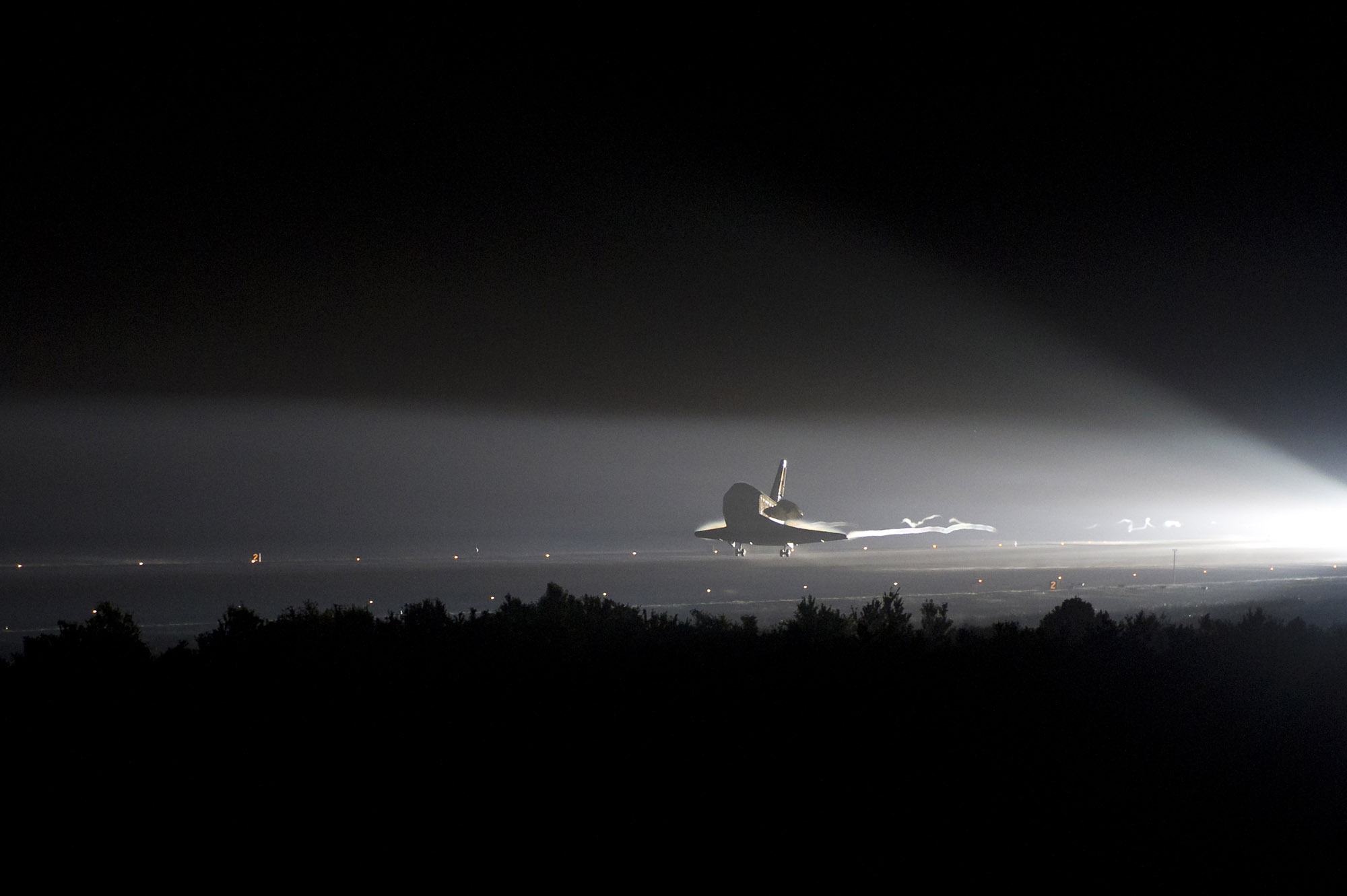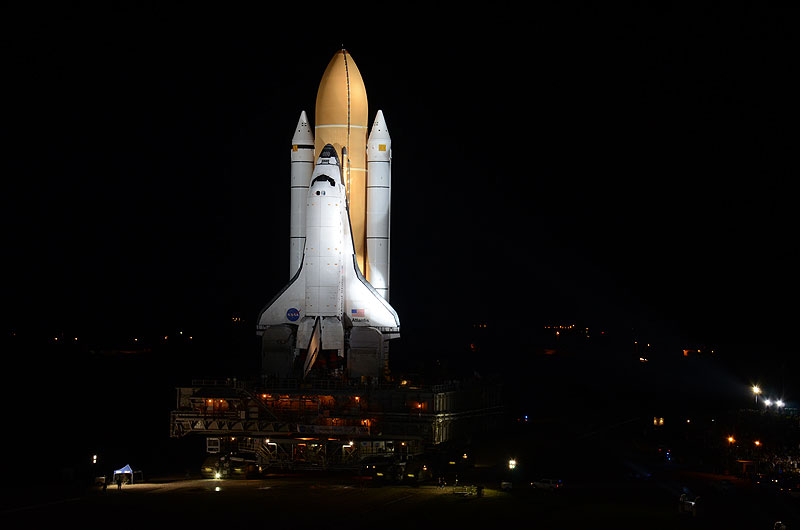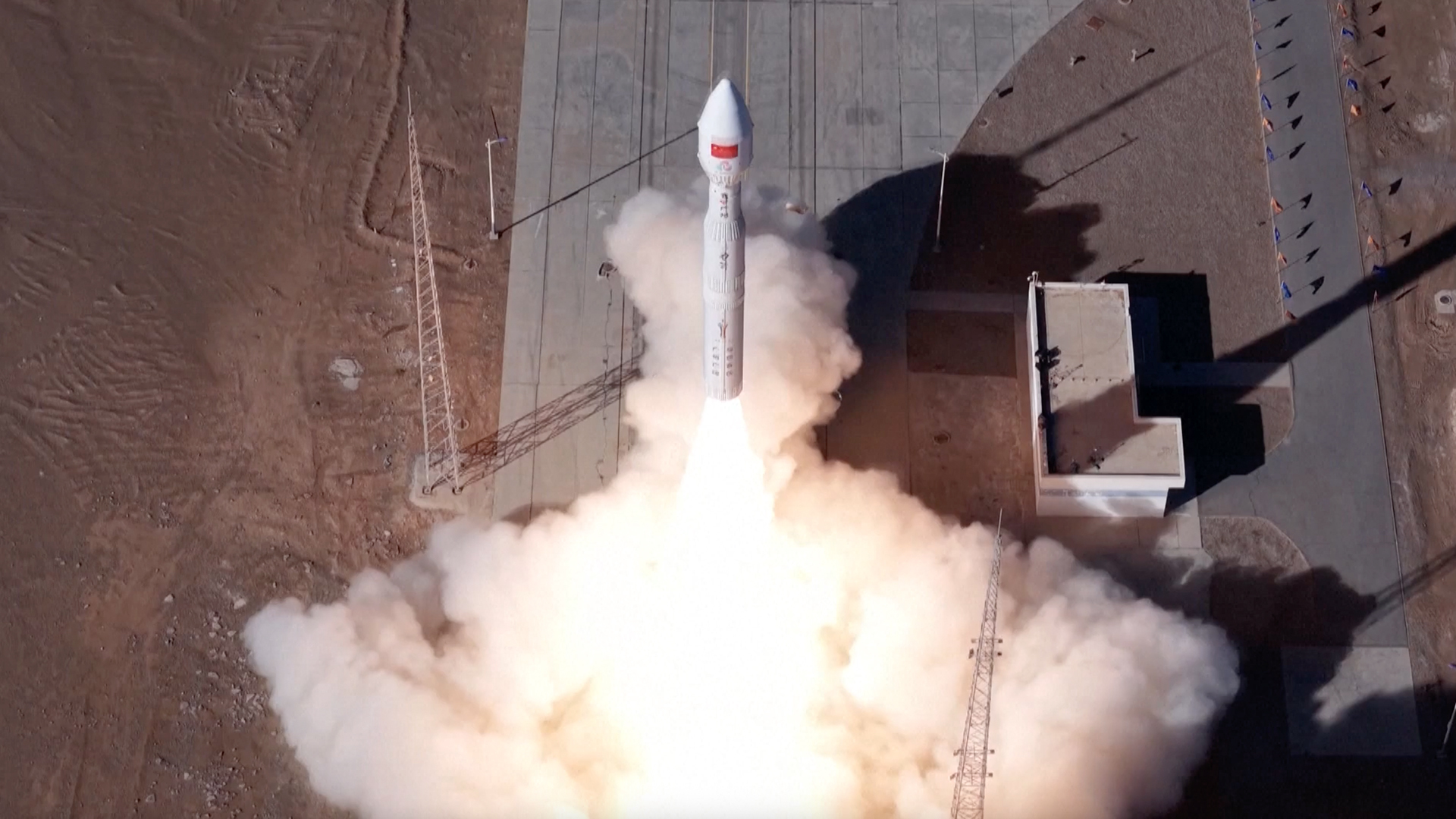For NASA, Just One Last Space Shuttle Flight Remains

CAPE CANAVERAL, Fla. – With the safe landing today of shuttle Endeavour after its final mission in space, NASA is another step closer to a looming deadline: the very last flight of the agency's storied space shuttle program.
Endeavour landed today at NASA's Kennedy Space Center at 2:34 a.m. EDT (0634 GMT) to end a 16-day mission to the International Space Station. Yet in a symbolic handover, as Endeavour's wheels rolled to a stop on Runway 15 on this morning (June 1), another shuttle — Atlantis — made its last slow crawl to the launch pad for its own final mission in early July.
NASA is hoping to launch Atlantis on July 8 on a 12-day resupply mission to the International Space Station. Four astronauts – commander Chris Ferguson, pilot Doug Hurley and mission specialists Sandy Magnus and Rex Walheim – will fly Atlantis on what will be the grand finale of NASA's shuttle program. [Most Memorable Space Shuttle Missions]
Endeavour's STS-134 flight was the orbiter's 25th and final mission, and delivered a $2 billion astrophysics experiment and extra supplies to the orbiting complex. Atlantis' flight will be STS-135, the 135th and last ever mission for the shuttle program after more than 30 years of spaceflight.
Rolling to the launch pad
Atlantis began its 3.4-mile trek from the cavernous Vehicle Assembly Building to the launch pad Tuesday night at 8:42 p.m. EDT (0042 June 1 GMT). The roughly 7-hour journey ended at 3:29 a.m. EDT (0729 GMT), about an hour after Endeavour touched down.
"Seeing Atlantis roll out was really when it started to hit me that we're never going to see that again," Mike Moses, chair of the shuttle mission management team, said in a news briefing today. "So that was a pretty big, emotional event. But again, it was tempered with turning around and focusing on landing." [Photos: Shuttle Atlantis' Last Launch Pad Trek]
Breaking space news, the latest updates on rocket launches, skywatching events and more!
Having two shuttle milestones within close proximity to one another was a unique and special event that drew large crowds and also served as a poignant reminder of the program's imminent end.
"It's a very good day today, and I really want to thank the folks down here for all the dedication and hard work they put in," said NASA's space operations chief Bill Gerstenmaier.
The plan for the future
After Atlantis returns to Earth, NASA's space shuttle program will officially come to a close. NASA is ending its 30-year shuttle program to focus on developing new spaceships and rockets for exploration beyond low-Earth orbit, such as missions to an asteroid, the moon or Mars.
Yet, until the next generation vehicles are ready, NASA faces a gap in human spaceflight during which time the agency will have to rely on Russian-built Soyuz spacecraft to reach the International Space Station.
"Times of transition are very difficult, and we're certainly in a time of transition," Magnus said. "As we're moving through the transition, it's difficult to see the big picture because we're all caught up in the little details. I think in the end, we'll end up with a good plan and we'll have a solid future ahead of us and we're just working our way through this very difficult transition in the meantime."
And while the legacy of the space shuttle program will live on, the program's retirement will also signify the end of an iconic part of the country's space program.
"I think we're losing that piece of identity," Walheim said. "That is a quintessential American vehicle. You point to that and people know it's from the United States."
Reaching farther out into the cosmos
But, to build upon the achievements of the space shuttle program and to advance human exploration, requires NASA to push further out into the solar system, he said.
"As much as the space shuttle has done its mission to launch the interplanetary probes, to launch the Hubble Space Telescope, to build the space station – it's complete," Walheim said. "So it's done its job, and it's done its job admirably. Now it's time to move onto something new. We've got to get out of low-Earth orbit, so to do that we need a new vehicle."
But, the space shuttle era will always be remembered as a critical chapter in the nation's history, and Atlantis' upcoming STS-135 flight will be a part of that rich heritage.
"I think we can look back and really take the sweet part of all this and say that we are blessed to have been a part of it – all of us, not just the chosen few who are lucky enough to fly it," Ferguson said. "As a country, I think we can look back and say, 'I remember when we flew the space shuttle and I remember the proud moment I felt when I felt the rumble in my chest when I watched the space shuttle launch, and I long for those days again.'"
You can follow SPACE.com Staff Writer Denise Chow on Twitter @denisechow. Visit SPACE.com for complete coverage of Endeavour's final mission STS-134 or follow us @Spacedotcom and on Facebook.

Denise Chow is a former Space.com staff writer who then worked as assistant managing editor at Live Science before moving to NBC News as a science reporter, where she focuses on general science and climate change. She spent two years with Space.com, writing about rocket launches and covering NASA's final three space shuttle missions, before joining the Live Science team in 2013. A Canadian transplant, Denise has a bachelor's degree from the University of Toronto, and a master's degree in journalism from New York University. At NBC News, Denise covers general science and climate change.

